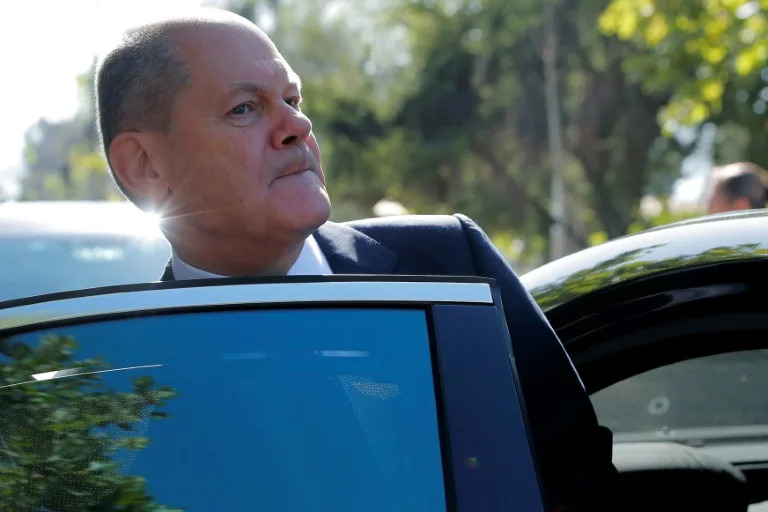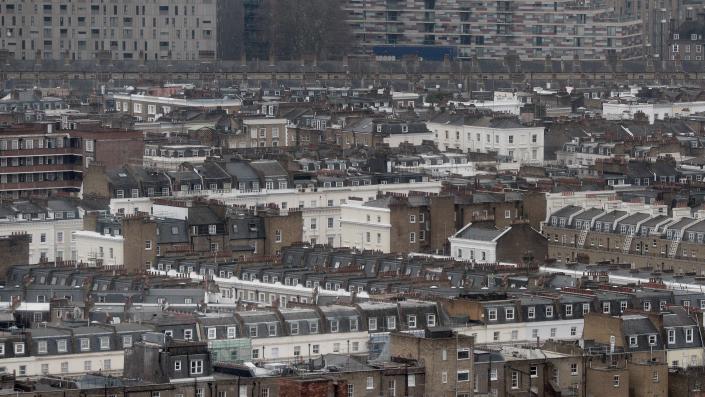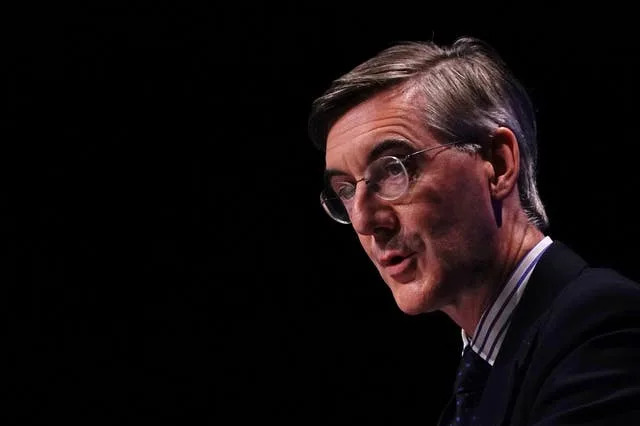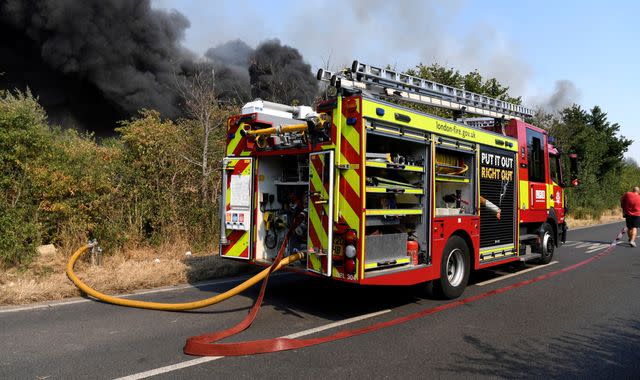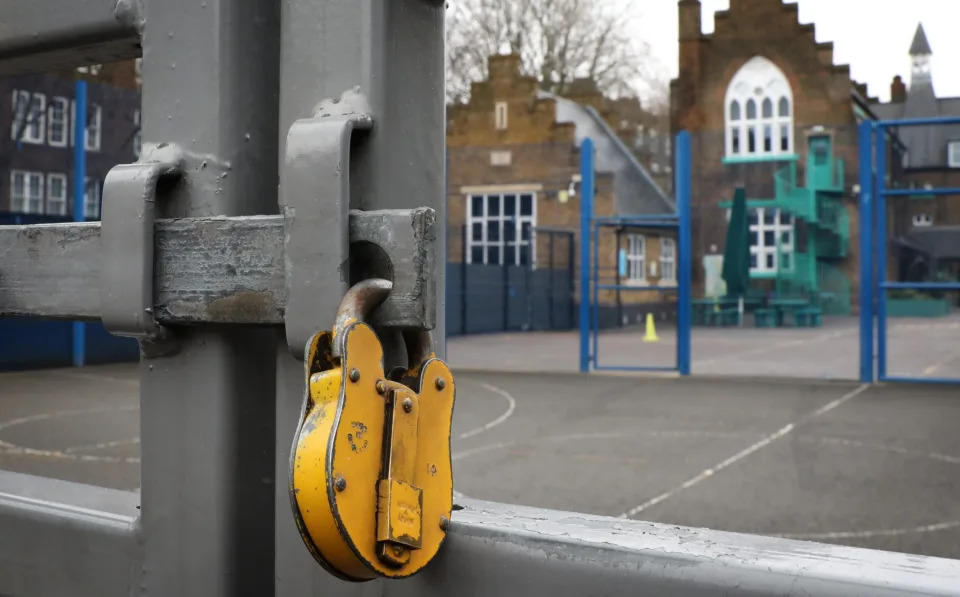How soon will it be until the world reaches 'peak oil'?
A report by oil giant BP predicts that the world will sharply reduce its reliance on the company's signature product, oil and gas, over the next 25 years.
David Knowles
·Senior Editor
Mon, January 30, 2023

An oil field in Midland, Texas. (Nick Oxford/Reuters)
Oil giant BP released a report Monday predicting that the world would sharply reduce its reliance on the company's signature product, oil and gas, over the next 25 years as countries hasten their transition to renewable sources of energy so as to combat climate change.
That shift means that the planet could soon reach what is commonly referred to as “peak oil,“ the point when global production of oil reaches its high point before entering into steady decline.
In its annual energy outlook, BP said that fossil fuels, which it said accounted for 80% of energy usage in 2019, would fall to just 20% by 2050. What’s more, the company whose industry is a driving force behind rising global temperatures, took pains to applaud the transition to cleaner forms of energy.
“The continuing rise in carbon emissions and the increasing frequency of extreme weather events in recent years highlight more clearly than ever the importance of a decisive shift towards a net-zero future,” Spencer Dale, the chief economist at BP, wrote in a forward to the report.
Helping spur the transition to renewables, the report says, are actions being taken by countries like the United States to rein in greenhouse gas emissions that 99.9% of scientists believe are responsible for rising temperatures.
“Government support for the energy transition has increased in a number of countries, including the passing of the Inflation Reduction Act in the US,” the report states. “But the scale of the decarbonization challenge suggests greater support is required globally, including policies to facilitate quicker permitting and approval of low-carbon energy and infrastructure.”
On Monday, President Biden promoted U.S. subsidies passed in the Inflation Reduction Act designed to help consumers purchase zero-emissions electric vehicles.
Last year, California became the first U.S. state to announce it would ban the sale of new gas-powered automobiles by 2035, and several other states are considering similar restrictions. The transportation sector accounts for roughy 27% of U.S. greenhouse gas emissions, according to the Environmental Protection Agency.
The speed at which the world transitions to clean sources of energy is of the utmost importance, climate scientists have warned. A report issued last April by the United Nations Intergovernmental Panel on Climate Change concluded that pledges and action taken by the world's nations were falling short of the goal of preventing a catastrophic rise in global temperatures.
BP seems to share that assessment.
“The carbon budget is running out. Despite the marked increase in government ambitions, CO2 emissions have increased every year since the Paris COP in 2015 (bar 2020),” the company’s report stated. The longer the delay in taking decisive action to reduce emissions on a sustained basis, the greater are the likely resulting economic and social costs.
Whether it will come quickly enough, there is little doubt that the marketplace for energy is undergoing a profound transformation. Like BP, Tesla CEO Elon Musk believes that oil and gas will soon relinquish dominance as a global energy source.
A December report by the International Energy Agency (IEA) found that, spurred by an energy crisis sparked in part by Russia’s war in Ukraine, the world was poised to add “as much renewable power in the next 5 years at it did in the past 20.”
Predictions as to exactly when the world will hit “peak oil” have come and gone for decades. Most climate scientists note that since carbon atoms remain in the atmosphere for up to 1,000 years, a slow transition away from oil and gas will not solve the climate crisis, but simply help blunt its force.
In 2021, the IEA laid out a road map for how the world could avert climate disaster. It consisted of a step-by-step approach to hasten the arrival of peak oil and the adoption of clean energy sources that consisted of halting approval for new coal-fired power plants and oil and gas fields (like those operated by BP), bans on the sale of new oil and gas furnaces to heat buildings, as well as the rapid adoption of electric vehicles and the end to gasoline-powered new vehicle sales. If the world adopted such a plan, the report stated, it could achieve the goal of net-zero emissions by 2050.
A report by oil giant BP predicts that the world will sharply reduce its reliance on the company's signature product, oil and gas, over the next 25 years.
David Knowles
·Senior Editor
Mon, January 30, 2023
An oil field in Midland, Texas. (Nick Oxford/Reuters)
Oil giant BP released a report Monday predicting that the world would sharply reduce its reliance on the company's signature product, oil and gas, over the next 25 years as countries hasten their transition to renewable sources of energy so as to combat climate change.
That shift means that the planet could soon reach what is commonly referred to as “peak oil,“ the point when global production of oil reaches its high point before entering into steady decline.
In its annual energy outlook, BP said that fossil fuels, which it said accounted for 80% of energy usage in 2019, would fall to just 20% by 2050. What’s more, the company whose industry is a driving force behind rising global temperatures, took pains to applaud the transition to cleaner forms of energy.
“The continuing rise in carbon emissions and the increasing frequency of extreme weather events in recent years highlight more clearly than ever the importance of a decisive shift towards a net-zero future,” Spencer Dale, the chief economist at BP, wrote in a forward to the report.
Helping spur the transition to renewables, the report says, are actions being taken by countries like the United States to rein in greenhouse gas emissions that 99.9% of scientists believe are responsible for rising temperatures.
“Government support for the energy transition has increased in a number of countries, including the passing of the Inflation Reduction Act in the US,” the report states. “But the scale of the decarbonization challenge suggests greater support is required globally, including policies to facilitate quicker permitting and approval of low-carbon energy and infrastructure.”
On Monday, President Biden promoted U.S. subsidies passed in the Inflation Reduction Act designed to help consumers purchase zero-emissions electric vehicles.
Last year, California became the first U.S. state to announce it would ban the sale of new gas-powered automobiles by 2035, and several other states are considering similar restrictions. The transportation sector accounts for roughy 27% of U.S. greenhouse gas emissions, according to the Environmental Protection Agency.
The speed at which the world transitions to clean sources of energy is of the utmost importance, climate scientists have warned. A report issued last April by the United Nations Intergovernmental Panel on Climate Change concluded that pledges and action taken by the world's nations were falling short of the goal of preventing a catastrophic rise in global temperatures.
BP seems to share that assessment.
“The carbon budget is running out. Despite the marked increase in government ambitions, CO2 emissions have increased every year since the Paris COP in 2015 (bar 2020),” the company’s report stated. The longer the delay in taking decisive action to reduce emissions on a sustained basis, the greater are the likely resulting economic and social costs.
Whether it will come quickly enough, there is little doubt that the marketplace for energy is undergoing a profound transformation. Like BP, Tesla CEO Elon Musk believes that oil and gas will soon relinquish dominance as a global energy source.
A December report by the International Energy Agency (IEA) found that, spurred by an energy crisis sparked in part by Russia’s war in Ukraine, the world was poised to add “as much renewable power in the next 5 years at it did in the past 20.”
Predictions as to exactly when the world will hit “peak oil” have come and gone for decades. Most climate scientists note that since carbon atoms remain in the atmosphere for up to 1,000 years, a slow transition away from oil and gas will not solve the climate crisis, but simply help blunt its force.
In 2021, the IEA laid out a road map for how the world could avert climate disaster. It consisted of a step-by-step approach to hasten the arrival of peak oil and the adoption of clean energy sources that consisted of halting approval for new coal-fired power plants and oil and gas fields (like those operated by BP), bans on the sale of new oil and gas furnaces to heat buildings, as well as the rapid adoption of electric vehicles and the end to gasoline-powered new vehicle sales. If the world adopted such a plan, the report stated, it could achieve the goal of net-zero emissions by 2050.
Alex Lawson Energy correspondent
Mon, 30 January 2023

Photograph: Michael Probst/AP
Global carbon emissions are expected to fall quicker than previously expected as a result of the war in Ukraine and Joe Biden’s efforts to encourage green investment, BP has said.
The oil and gas company said carbon emissions would fall more rapidly than it forecast a year ago thanks to renewed efforts by countries to pursue greater energy security by supporting domestic, renewable energy supplies.
In its annual energy outlook report, BP said it had reduced forecasts for global emissions in 2030 by 3.7% and by 9.3% in 2050. It expects oil demand to be 5% lower and gas demand to have fallen by 6% by 2035. The company said deployment of renewables projects would be 5% higher at current rates.
Related: The gas-fired plants tasked with keeping UK lights on – but at what cost?
Countries moved rapidly last year to wean themselves off Russian gas supplies after the invasion of Ukraine.
In the short term this has resulted in other fossil fuels such as coal being ramped up or kept on standby to fill the gap. However, demand for renewable projects to provide a cheap long-term replacement has also improved.
Biden’s Inflation Reduction Act, which came into force in August, is credited with encouraging a new wave of investment in renewables in the US. Policymakers in the UK and EU have been encouraged to follow suit.
BP’s new outlook forecasts that global emissions will peak during the 2020s and fall by 30% on 2019 levels by about 2050. However, that would still be short of the target of net zero by 2050 needed to avoid extremely damaging global heating. The UK has legally committed to this goal.
The BP chief economist, Spencer Dale, wrote in the report: “From an energy perspective, the disruptions to Russian energy supplies and the resulting global energy shortages seem likely to have a material and lasting impact on the energy system.
“Global energy policies and discussions in recent years have been focused on the importance of decarbonising the energy system and the transition to net zero. The events of the past year have served as a reminder to us all that this transition also needs to take account of the security and affordability of energy.”
The BP chief executive, Bernard Looney, set a target of making the company net zero by “2050 or sooner” on taking charge in 2020.
Looney has been attempting to revamp BP’s image and increase its focus on renewables. However, it faced criticism over plans to spend up to double the amount on oil and gas projects than on renewable investments this year.
In its outlook report, BP expects oil demand to level out at about 100m barrels a day over the next 10 years or so before falling to about 75m barrels a day by 2050. To hit global net zero goals, this would need to be reduced by 20m barrels a day.
BP’s profits have soared after Russia’s invasion of Ukraine sent already inflated gas prices even higher and led ministers to introduce a windfall tax on North Sea oil and gas operators. The company is expected to reveal fourth-quarter underlying profits of about $5bn next week.





